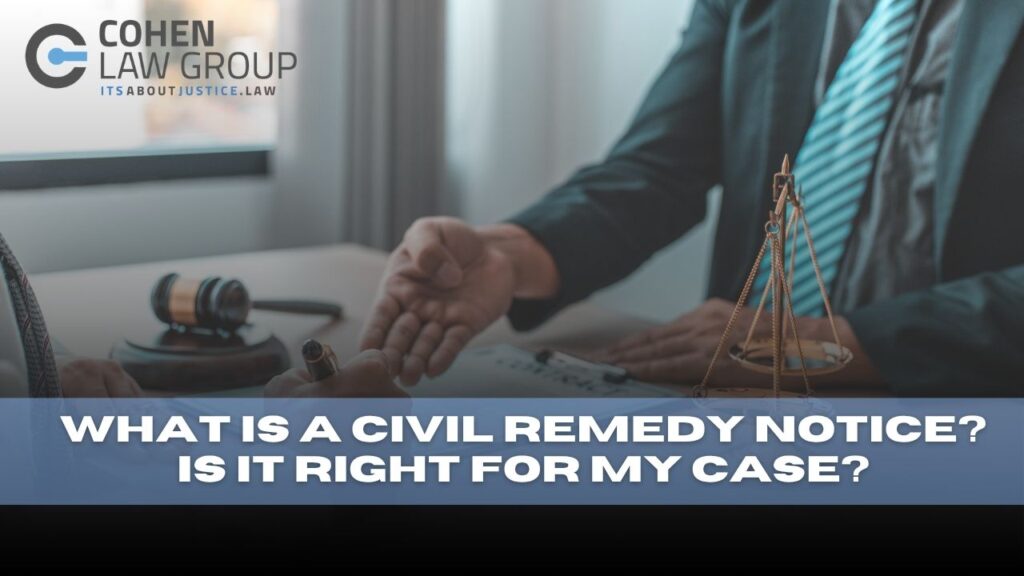What is a Civil Remedy for My Case?
Have you made a homeowner’s insurance claim and believe your insurance company is
acting in bad faith? There are several consumer protection laws in place that govern
how an insurance company in Florida is to act once a claim is made.
In Florida, a Civil Remedy Notice (CRN) is a mandatory document filed with the Florida
Department of Financial Services (FDFS) and the insurance company, serving as formal
notification that a policyholder intends to file a bad faith claim, giving the insurer 60 days
to address the alleged violation before a lawsuit can be filed. For example, in Florida,
insurance companies generally have 60 days from receiving notice of a claim to pay or
deny it, unless circumstances beyond the insurer's control prevent timely action,
according to Florida Statutes 627.70131(7). Thus, if your insurance company is
nonresponsive, or fails to pay a claim once its reasonably clear it should, or failed to
implement any internal claims procedures to ensure a fair claims process, your attorney
should be filing a Civil Remedy Notice.
In short, filing a Civil Remedy Notice puts the carrier on notice that the insured intends
to file a Bad Faith claim. Filing a civil remedy notice requires strict compliance, and it
must contain very specific allegations for it to be deemed valid. For example, the
content of a “CRN” must include: (1) Clear language stating the purpose of the notice is
to perfect the right to file a civil lawsuit; (2) The specific statutory provision the insurer
allegedly violated, including the specific language of the statute; (3) The facts and
circumstances giving rise to the violation; (4) The name of any individual involved in the
violation; and (5) Reference to specific policy language that is relevant to the violation, if
any.
Your insurance company is required to respond to your CRN within sixty (60) days. If it
fails to respond, that could mean trouble, as that creates a rebuttable presumption
against the insurer as it relates to the bad faith claim. This could put some necessary
pressure on your insurer to settle your claim. Contact one of our attorneys to see if filing
a CRN is right for your case.
Dalya S. Zalloum, ESQ.








